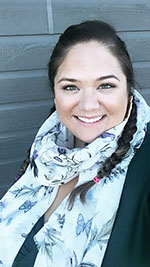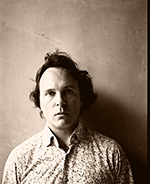 Malahat Review volunteer Brandon Teigland talks with the fall issue #212 contributor about fictionalizing an emotion in order to process it, self-reflection leading to writing, and choosing to write her story, "Asleep Till You're Awake," in a fabulist style.
Malahat Review volunteer Brandon Teigland talks with the fall issue #212 contributor about fictionalizing an emotion in order to process it, self-reflection leading to writing, and choosing to write her story, "Asleep Till You're Awake," in a fabulist style.
BT: Your story deals with the physical absence of a mother. Much of it is about living with complicated grief (an absence of grief and mourning) and having to become comfortable with leaving some questions concerning closure unanswered. Where did your inspiration come from for this story?
FC: My inspiration for this story came from a place of processing my own grief of the death of my mother and how years later I can still be surprised by how hard it can hit in the most mundane of moments. This story is based on a true experience that I had at the doctor's office where a woman who looked, moved, and was so much of how my own mother was came into the waiting room I was waiting in and took a seat across from me. It was like the air was punched out of my body in that moment. I had to leave the office, missing my appointment, because of how strong the urge to break down and sob was. This moment took place roughly three years after my mother’s death. I immediately went home, sat down, took out a notebook, and wrote this story in one draft, and it appears almost exactly as it came out that day. For me, fictionalizing that emotion was the only way I could process it.
Read the rest of Francine's interview on TMR's website.
Fall Issue Interview with Shane Rhodes on Poetry
 Malahat Review volunteer Eliot Gilbert talks with the fall issue #212 contributor about Western novels, the origin of his name, and how the original injustice of genocide and settlement are not confined to the past. It's Here All the Beauty I Told You About is an excerpt of a manuscript in progress.
Malahat Review volunteer Eliot Gilbert talks with the fall issue #212 contributor about Western novels, the origin of his name, and how the original injustice of genocide and settlement are not confined to the past. It's Here All the Beauty I Told You About is an excerpt of a manuscript in progress.
EG: I find it significant that some of your work is very visual erasure poetry. Why do you think this form lends itself to It's Here All The Beauty I Told You About?
SR: Found poetry, erasure poetry, cut ups and visual poetry have all been important parts of my poetic practice as I use poetry to grapple with the history and present of North American colonization and its attendant narratives. For me, these are valuable techniques to take apart and interrogate the stories we have been told, especially the stories settlers tell themselves about their past, their present and their future, and to problematize ideas of ownership. Sometimes seen as post-modern techniques divorced of politics, I think we are in a period right now where we can see how valuable these techniques are in art that questions origins, questions canons, questions the narrative history our literature and lives are built upon. Look at poets like M. NourbeSe Philip, Jordan Abel, Sonnet L’Abbé, Layli Long Soldier or Billy-Ray Belcourt. Each have used these techniques to amazing effect, creating a valuable counter discourse out of texts written right over them.
In effect, found poetry is about working within constraints just as demanding as a sonnet. How can you create something out of the limited vocabulary of a Western? How can you make another text speak meanings it was never intended to speak? Using erasure, how can you highlight the text’s own erasures? And what can you do with this piece of history that is integrally yours but integrally repugnant?
Read the rest of Shane's interview on TMR's website.